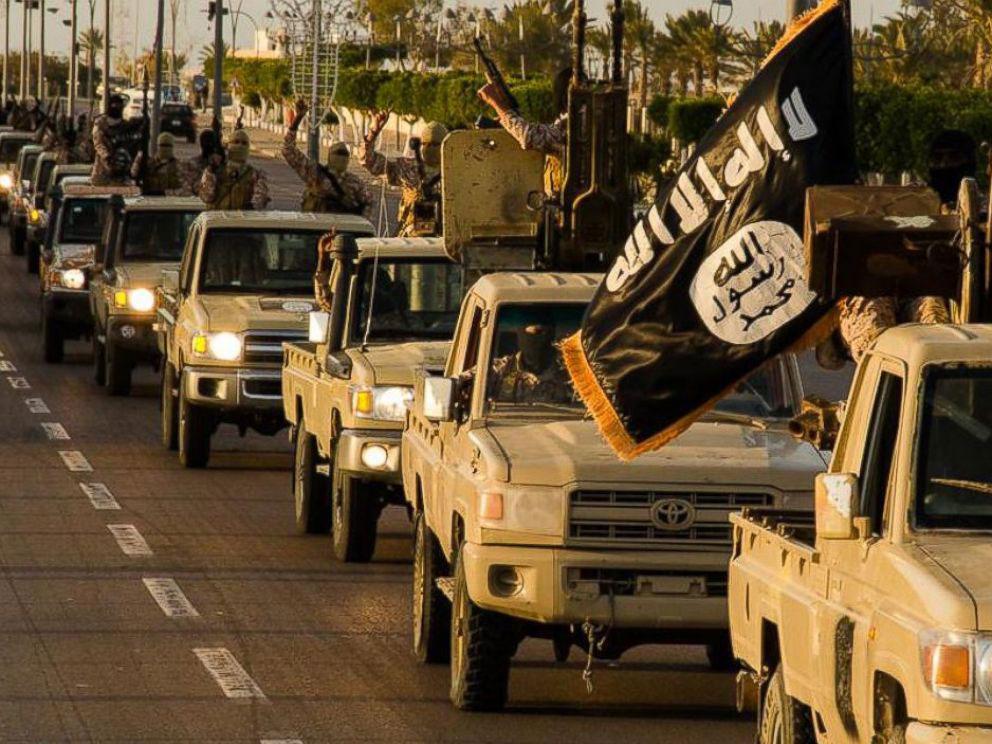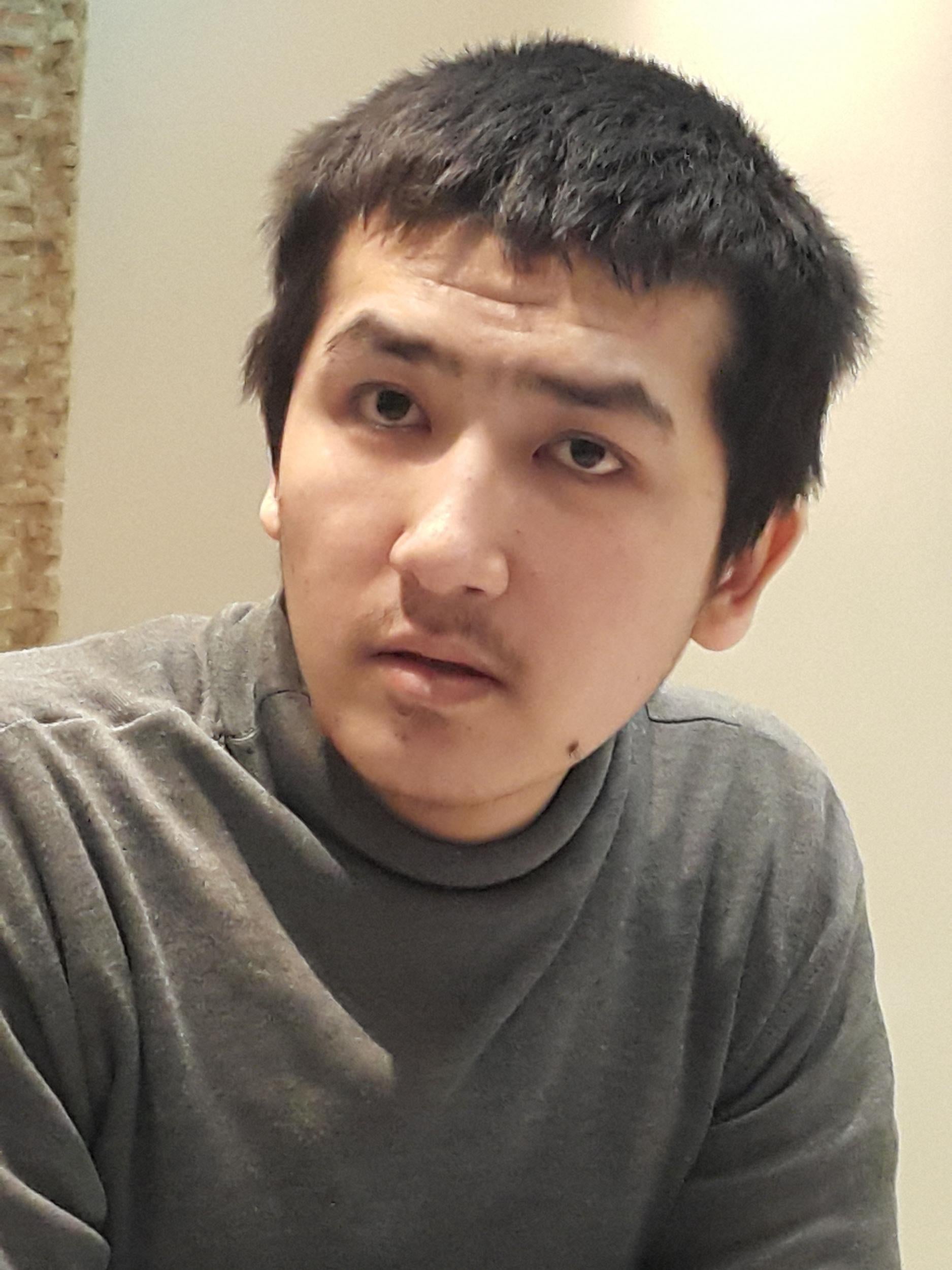The former Isis translator who learned to speak the language of hate
As an interpreter for Isis in Syria, Jan Mahmoud Yahya witnessed first-hand the horror of the caliphate’s regime. Now an inmate in the notorious Mezze prison in Damascus, he tells Robert Fisk of jihad and the absurdity of war

Jan Mahmoud Yahya was an official translator for Isis when they led seven condemned men into the central al-Naim square in Raqqa. Arriving in Syria from Kyrgyzstan through a complex but highly organised system of Islamist recruitment and training, Yahya spoke calmly, sometimes smiling, even joking, in the Mezze military prison on the edge of Damascus. He had had time enough to reflect on what he had witnessed.
“A lot of ‘jihadi’ people saw these executions and one day I was beside the square when I saw lots of people and I asked some of them ‘What’s going on?’ They said there was going to be an execution.” We had asked the Syrian prison governor to remove the massive and grotesque cloth blindfold which Yahya was wearing when he was led into the room.
He blinked in the light and held out his feet to be shackled – the prison guards were fearful he would try to jump out of the window and escape – before the prison governor and his men left the room at our insistence.
When we told Yahya he didn’t have to talk to us, that he could drink coffee or just chat, he said he wanted to talk. “The people in the square said that a man was to be executed for a sin, a man who had exploded a bomb in the square. But the bomb hadn’t killed anyone and they led six other men into the square. The first man admitted he had exploded the bomb and a fighter with a mask over his face read the death sentences and ordered them to kneel. There was a man behind each prisoner – seven executioners for seven men – and they each shot their prisoner in the back of the head. I thought it was right because a mufti had also read the sentence of death. After all, I was one of them.”
While Yahya says he never killed anyone, he was indeed ‘one of them’. A 19-year old from the Kyrgyz city of Osh in the Fergana Valley, he described how he took an oath of allegiance to Isis in 2013. “I was full of ‘jihadi’ ideas,” he said, and smiled in a self-deprecating way. Just how Yahya came to have these ideas – and how he was lured to Syria – proved a highly instructive story.

“I went to Egypt for studies in ‘sharia’ law at Al-Azhar [University] and I had been there a year and a half when a Sheikh, Mohamed Hassan, issued a ‘fatwa’ about a ‘jihad’ in Syria, and said that every Muslim should go to participate in it. He gave the students records and tapes containing videos that showed that the Syrian army kills people and rapes people and does brutal things to people and he said ‘You must go to make ‘jihad’ in Syria’. This filled my mind. He gave everyone $100 as a gift.”
Another student told Yahya to contact a man called Abu Mohamed Turkiya [Father of Mohamed from Turkey]. “I bought a ticket for $270 to fly to Ataturk Airport in Istanbul where I was met by Abu Mohamed who was responsible for helping ‘jihadis’ go to Syria. He bought me a bus ticket to Atma on the other side of the border. It was a 13-hour trip. Abu Mohamed said to me that I would have no problems in Turkey – that there were many young men like me.”
Yahya says he stayed two nights in a big house on the frontier and was then taken to a smuggling route where he saw hundreds of boys between the age of 15 and 18 helping people to cross the border. People with Middle Eastern faces could walk across on a road. Obvious foreigners – like Yahya with his slanted eyes – were told to take a smugglers’ road. A nearby Turkish soldier, Yahya said, “looked away when I crossed.” He was taken to the “guest house” of a man called Saifullah Chechenya [Saifullah from Chechenya]. There were refugee camps in the vicinity with UN flags. Women were wearing full Islamic covering.
“There were lots of houses there for guests of Daesh, guests of the Nusrah Front, the Muhajerin.” Yahya always used the Arabic acronym “Daesh” for Isis. “In the Chechenya house, I met another Kyrgyz man who called himself Abu Hanifa who had been studying ‘sharia’ in Saudi Arabia, and I asked him which house he was going to. He told me Daesh was the most powerful and he would go to them. Abu Hanifa was like a mufti in the house; he said I could decide on any group I wanted. Chechenya had more than 200 men under his control. All these people met a mufti called Abu Oweis al-Moghrabi [Father of Oweis from the Maghreb] and they joined Daesh. I made a pledge to Daesh. Abu Oweis said we were safe and promised that we would expand to other countries to spread the Islamic faith in Europe and Russia.”
Yahya joined a group of 30 Chechen and Kyrgyz men and noticed there were separate houses for different recruiting groups, “a German house, a British house, a Belgian house, a French house”. There was fierce fighting across Syria in 2013 between Isis and the “Free Syrian Army” (FSA). “Daesh tried to withdraw from the Aleppo countryside but their headquarters was surrounded by the FSA and put under siege. Abu Bakr al-Baghdadi [the Isis leader] said over the internet that all women and children of Daesh families must go to Raqqa but that young people must stay and fight. As a translator, I moved there with the families and stayed at the Odessa Hotel in Raqqa which was under Daesh control.”

Yahya spent many days in Raqqa, translating for Isis men who regularly witnessed executions in al-Naim square in the city. But after several months there, Yahya’s epic of “jihad” turned to farce. The car he was driving had broken down and when he visited a vehicle repair shop, he met a Syrian man who asked him if he wanted to get married. “I didn’t know where this man came from but he told me: ‘I have a relative, a girl you can see and you can meet her tomorrow at 7 o’clock.’ So next day, I went with two friends – they had their guns but I had left my Kalashnikov behind – but I didn’t know the road. It was near the Tabqa airbase in an area under Syrian control.”
And that was the guile-less Yahya’s undoing. He arrived at the house, was given green tea and juice to drink – which he now believes was laced with drugs – and fell asleep. When he awoke five hours later, he found five Syrian government soldiers standing around him and his two friends. “They told us: ‘You are surrounded’. They took us to Tabqa and then flew us to prison in Damascus. We confessed everything because we had been dressed in ‘jihadi’ clothes. I thought I would be killed and that the army would harm me. But they did not.”
After two years and two months in a Syrian jail, Yahya says what all prisoners almost always say: that when he arrived in Syria, he had been fed ‘lies’ on the internet but after his capture, he was well treated by his captors and not tortured. He is hoping, he says, that President Bashar al-Assad will grant a prisoners’ pardon and that he can go home to his family. “But now I’m known in Kyrgyzstan as a ‘terrorist’ and I’m worried the police will come to my family.” And what sort of reception would Yahya receive from his father Daniel, who runs a bicycle shop in Osh?
“Before I left Kyrgyzstan, a relative of mine advised me that if I wanted to be an Islamic teacher, I should study in Egypt. I asked my father, who approved and he helped me to travel there. When I called him on the telephone for the first time and told him I was in Syria – this was three months before I was captured – I asked him not to be upset. But he said: ‘They told you lies – there is no ‘jihad’ in Syria.’ He asked me to go home and said he was afraid he would be arrested by the police.”
The Fergana Valley in which Osh lies has for years been home to Islamist extremists, even under Soviet rule, and Isis itself is believed to have cadres operating there. The Kyrgyz government is unlikely to demand Yahya’s release. After he shook hands with us, he turned to go and, even before his jailors arrived, he automatically put his arms behind his back as if about to be handcuffed.
Join our commenting forum
Join thought-provoking conversations, follow other Independent readers and see their replies
Comments
Bookmark popover
Removed from bookmarks